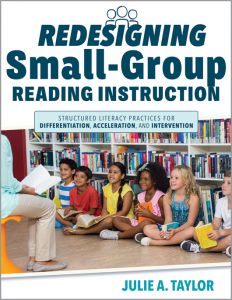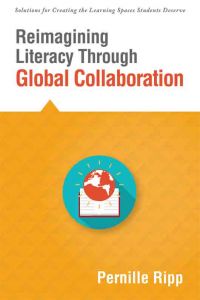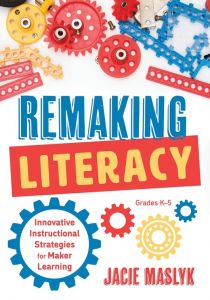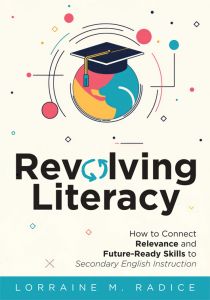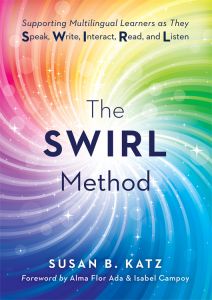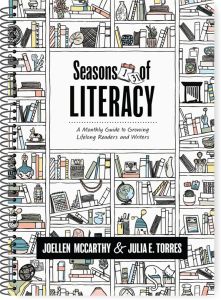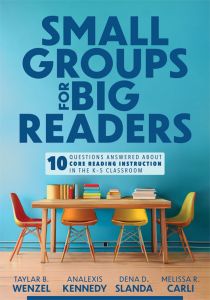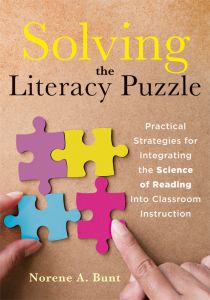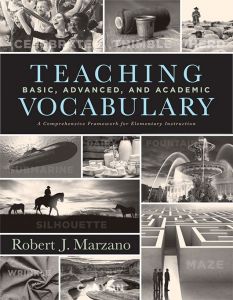Authors
- Redesigning Small-Group Reading Instruction
Structured Literacy Practices for Differentiation, Acceleration, and Intervention
Grades K–8 teachers, curriculum specialists, literacy coaches, reading interventionists, and administrators gain research-based strategies for small-group reading instruction tailored to five developmental phases. This book equips you with practical templates and reading strategies for effective small-group instruction, catering to each developmental phase.
$66.00 - Redesigning Writing Units Webinar
April 17, 2019
Join writing expert Kathy Tuchman Glass for a one-hour webinar on instructional practices and strategies for opinion/argumentation in grades 4–10.
Free webinar - Reimagining Literacy Through Global Collaboration
Discover how to create learning environments where students gain 21st century skills, realize their work matters, and know that their work travels beyond classroom walls.
$36.50 - Remaking Literacy
Innovative Instructional Strategies for Maker Learning, Grades K–5
Transform how you teach literacy in elementary classrooms by integrating makerspace ideas and hands-on learning experiences designed to deepen student understanding and reading comprehension.
$62.00 - Revolving Literacy
How to Connect Relevance and Future-Ready Skills to Secondary English Instruction
This book provides a step-by-step process for English educators to design future-ready literacy experiences in secondary English classrooms. Grades 6–12 teachers will find practical steps and resources, including reflection questions and tools, to aid curriculum development and reflection.
$66.00 - The SWIRL Method
Supporting Multilingual Learners as They Speak, Write, Interact, Read, and Listen
National Board Certified Teacher and award-winning, best-selling author Susan B. Katz provides educators with a practical guide for teaching language to multilingual learners. Discover strategies and exercises for speaking, writing, reading, and listening skills, with a focus on understanding student progress and offering continued support.
$66.00 - Seasons of Literacy
A Monthly Guide to Growing Lifelong Readers and Writers
McCarthy and Torres provide a yearlong plan for teachers to cultivate positive and engaging reading experiences. This planner includes monthly themes, literacy activities, and reflection exercises to help teachers inspire students.
$66.00 - Small Groups for Big Readers
Ten Questions Answered About Core Reading Instruction in the K–5 Classroom
This book promotes small-group reading as a key tool for K–5 teachers, offering frameworks, videos, and text strategies. Teachers can differentiate instruction with evidence-based routines, creating a dynamic learning environment that nurtures readers and aligns whole-class instruction with small-group lessons.
$66.00 - Solving the Literacy Puzzle
Practical Strategies for Integrating the Science of Reading Into Classroom Instruction
This book consolidates decades of research on effective literacy instruction. It provides a clear model for designing effective reading instruction that integrates the science of reading and evidence-based strategies. Teachers and educators can learn to confidently implement these strategies in the classroom.
$62.00 - Teaching Basic, Advanced, and Academic Vocabulary
A Comprehensive Framework for Elementary Instruction
Dr. Robert J. Marzano identifies more than 8,000 vocabulary terms, organizing them into 444 semantic clusters. This resourceful word list is geared to help students learn a tiered vocabulary and close the achievement gap in education.
$66.00

